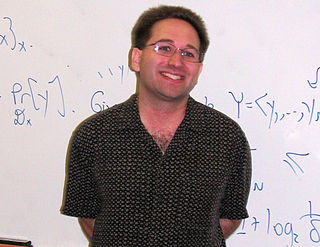A Quote by Edwin Meese
The implication that everyone would have to accept its judgments uncritically, that it was a decision from which there could be no appeal, was astonishing.
Quote Topics
Related Quotes
It may be considered as an objection inherent in the principle, that as every appeal to the people would carry an implication of some defect in the government, frequent appeals would in great measure deprive the government of that veneration which time bestows on every thing, and without which perhaps the wisest and freest governments would not possess the requisite stability . . . a constitutional road to the decision of the people ought to be marked out and kept open, for certain great and extraordinary occasions
We feel that our actions are voluntary when they follow a decision and involuntary when they happen without decision. But if a decision itself were voluntary every decision would have to be preceded by a decision to decide - An infinite regression which fortunately does not occur. Oddly enough, if we had to decide to decide, we would not be free to decide
If P=NP, then the world would be a profoundly different place than we usually assume it to be. There would be no special value in “creative leaps,” no fundamental gap between solving a problem and recognizing the solution once it's found. Everyone who could appreciate a symphony would be Mozart; everyone who could follow a step-by-step argument would be Gauss; everyone who could recognize a good investment strategy would be Warren Buffett.
The most remarkable feature about the magnitude scale was that it worked at all and that it could be extended on a worldwide basis. It was originally envisaged as a rather rough-and-ready procedure by which we could grade earthquakes. We would have been happy if we could have assigned just three categories, large, medium, and small; the point is, we wanted to avoid personal judgments. It actually turned out to be quite a finely tuned scale.
When we call something unfair or indecent or unconscionable or evil, when we speak of mercy and pity and compassion, those words have meaning, regardless of our particular faith or moral philosophy. They appeal to common standards we all are expected to understand and accept, standards without which we could not live any common life at all.




































